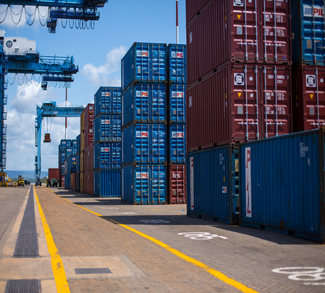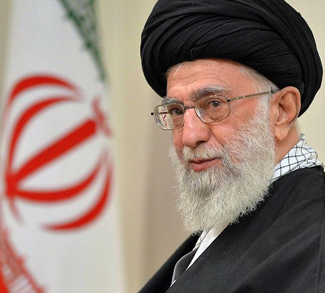As America’s most sweeping sanctions against the Syrian regime gain traction, serious doubts are being raised about the efficacy of humanitarian exemptions introduced to ensure that civilians are not unintentionally affected by the measures.
The Caesar Syria Civilian Protection Act, or ‘Caesar Act,’ named after a Syrian defector who provided photographic evidence of the Damascus regime’s human rights abuses, doubles down on the Syrian leadership and its backers in an effort to pressure it to negotiate an end to the decade-long civil war.
Since the legislation came into force in June, there have already been three waves of Caesar sanctions, which like those against the Tehran regime include secondary measures that target anyone doing business with the Syrian authorities or with Iranian and Russian entities in the country. They apply particularly to specific sectors, such as construction and engineering, discouraging investors from engaging in reconstruction.
Given that international pressure has so far failed to persuade Syrian President Bashar al-Assad to end the conflict, the US is seemingly intent on frustrating his efforts to consolidate and benefit from his war gains. Critics argue, however, that the new US policy might have a limited impact on an already isolated regime while, potentially, further immiserating civilians. It risks, they say, compounding hardships recently worsened by COVID-19 and the banking crisis in neighbouring Lebanon, which has squeezed dollar availability.
Indeed, apparent nervousness over the economic consequences of the Caesar Act, which was signed into law by President Trump last December, is believed by some to have contributed to the local currency, the Syrian pound, tumbling in value, triggering sharp rises in prices ahead of the legislation coming into force. The World Food Programme warned in June that if shortages of cash, food and supply chain disruption continue, “famine could very well be knocking” on Syria’s door.
The US administration is acutely aware of the potential for unintended civilian suffering. That is why it has included humanitarian exemptions for all areas of Syria in the new sanctions policy, enabling, in theory at least, international aid organisations to continue assisting Syrian civilians.
Yet a number of concerns have been raised, with some calling for the waiver process to be reviewed, believing it might block certain types of aid and unwittingly deter relief groups, for which there is emerging evidence. The New York Times last month reported humanitarian workers operating in Syria noting that it was becoming harder to bring medicine into the country, and that insurance companies have been telling organisations that they will not cover certain procedures.
Basma Alloush, a Syrian humanitarian advocacy professional in the US, and Alex Simon, the director of the Syria Programme at the research organisation Synaps, warned in the foreign policy and national security publication War on the Rocks that the current exemption system was opaque, heavily bureaucratic, and prone to up to months of delays, with the request sometimes ultimately being met with rejection. The article also drew attention to the problem of overcompliance where, the authors said, banks and other businesses choose not to engage with even legitimate transactions for fear of falling foul of sanctions.
A paper by the Arab Reform Initiative (ARI), an independent think tank, said that exemptions provided by sanctions regimes are not working effectively in practice. The piece, by Genevieve Zingg, a legal fellow at the Syria Justice and Accountability Centre, urged their modification to address issues consistently experienced by aid groups, companies, and organisations that employ them, especially in light of COVID-19 and deteriorating economic conditions. She cited complicating factors like burdensome compliance requirements and time-consuming application processes.
Regarding overcompliance, the paper suggested that sanctioning bodies like the Office of Foreign Assets Control of the US Treasury Department issue specific “comfort letters” which, it said, would address fears of risk-averse banks and financial institutions by offering tangible protection from the possibility of future prosecution for sanctions violations.
Zingg also drew attention to delays in licence applications for so-called dual-use goods and services, such as raw materials and technical parts, which have critical medical applications but can also be used for military purposes. These, she said, include items like nitrous oxide for anaesthetics in hospitals, chlorine products used for water purification and sanitation, and spare parts needed for dialysis machines.
Moreover, a commentary by the conflict-resolution think tank International Crisis Group (ICG) suggested that foreign NGOs might be deterred from supporting urgent small-scale rehabilitation projects due to uncertainty about the US authorities’ distinction between humanitarian aid and reconstruction work. The ICG called for Washington to not only expand the scope of humanitarian exemptions that it will allow, but also ensure this is widely understood to “reassure third-parties who may otherwise stay away for fear of real or perceived legal penalties.”
As the Caesar sanction programme proceeds, the US needs to be better informed about the impact of its measures on civilians, so as to make any necessary adjustments. Rebecca Barber, an independent consultant in humanitarian policy and international law, writing in Just Security, an online forum for analysis of US national security law and policy, said that the legislation says nothing about human rights impact assessments or monitoring, “and there is certainly no mention of remedies or redress for the impacted population.”
Alloush and Simon proposed the creation of a mechanism, fine-tuned over time, that would enable officials to gather information from relief groups on the humanitarian consequences of the Caesar sanctions, although they point out that it would entail “more honesty and self-criticism from policymakers – and far more precise input from humanitarians – than has been the norm.”
While the US insists that it has no desire to harm civilians, its new sanctions risk doing so unless closer attention is paid to the reported oversights and weaknesses in exemption provision. A reluctance or failure to address the latter could play into the hands of those sceptical of Washington’s stated aims, at a time when the effectiveness of sanctions as an instrument of diplomacy has rarely been more hotly debated.
Yigal Chazan is the head of content at Alaco, a London-based business intelligence consultancy.
The views expressed in this article are those of the authors alone and do not necessarily reflect those of Geopoliticalmonitor.com or any institutions with which the authors are associated.




